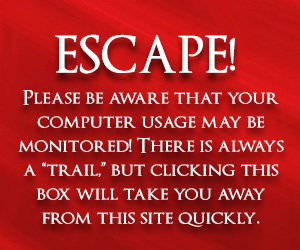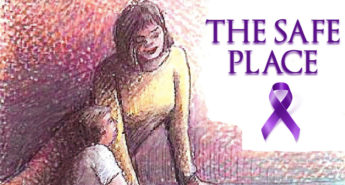 No parent wants to hear that their child has been sexually abused in any way. In fact, many parents would say this would be their worst nightmare. The unfortunate truth is that one in three girls and one in six boys have been sexually abused before the age of 18, according to the Crime Victims Center. The CVC also reports that one in five were sexually solicited over the internet and the average age for any of this crimes is 9.9 for boys and 9.6 for girls. Even more shocking for most parents to learn is that often, the abuser can be someone close to them or someone in high power such as teachers, religious leaders, neighbors, coaches, and even family members. When children are abused, most of the time they are too scared or ashamed to tell someone what happened to them.
No parent wants to hear that their child has been sexually abused in any way. In fact, many parents would say this would be their worst nightmare. The unfortunate truth is that one in three girls and one in six boys have been sexually abused before the age of 18, according to the Crime Victims Center. The CVC also reports that one in five were sexually solicited over the internet and the average age for any of this crimes is 9.9 for boys and 9.6 for girls. Even more shocking for most parents to learn is that often, the abuser can be someone close to them or someone in high power such as teachers, religious leaders, neighbors, coaches, and even family members. When children are abused, most of the time they are too scared or ashamed to tell someone what happened to them.
Some signs to look for are decrease in school performance, a child saying there are monsters in their room or closet, a sudden negativity towards themselves or other people, crying when you drop the child off somewhere when they never cried before, self harm, and sleeping issues. Of course there are other signs you can look for as well, but these are a few. Also, some of these signs may turn out to be nothing, but they are always something you should look into if your child displays them. Kidpower creator, Irene van der Zande, also suggests these four strategies to protect your children from sexual predators:
- Put safety first. Kidpower’s moto is: “The safety and self-esteem of a child are more important than anyone’s embarrassment, inconvenience, or offense.” If you see something report it, and if you suspect there is a problem, address it and follow up on it to make sure everything is done to make the situation safe again.
- Make sure you know what someone is doing with your kids. Remember anyone can be an abuser and just because they work for a reputable company doesn’t mean they are necessarily a trustworthy person. Check references and trust your intuition if something feels off to you.
- Listen to your children and teach them not to keep unsafe secrets. Most abusers will build strong relationships with the child before abusing them. This often makes the child think what is happening is not bad or make them less likely to speak up. Have conversations with your child and ask “Is there anything that you have been wondering or worrying about that you haven’t told me?” Also,let them know that someone telling them to keep secrets about giving special gifts, touch, special favors, taking pictures or videos, and playing games are not safe and need to be reported.
- Prepare young people to take charge of their safety by practicing skills. Preparing your child for a situation like this could save them from going through the trauma of being abused. Teach them what to do in the situation, how to leave, and teach them that even small things such as affection and teasing should be their choice and no one else’s.
No one wants their child to be in this situation, and no one wants their child to have to go through it multiple times. Make sure you have frequent conversations with your child about this. Make sure you let them know no matter who it is, you will always be there to help them. Say something like, “Even if you made a mistake or did something wrong, I will love you and help you. Please tell me about anyone whose behavior makes you uncomfortable even if we really like this person so we can figure out what to do to keep everyone safe.”
If you know any child who has been abused call The National Child Abuse Hotline at 1-800-4-A-CHILD or 1-800-422-4453 or call The Safe Place at 501-354-1884, our Perryville office at 501-889-2030, or the National Crisis Line at 1-888-554-2501.




Leave a Reply